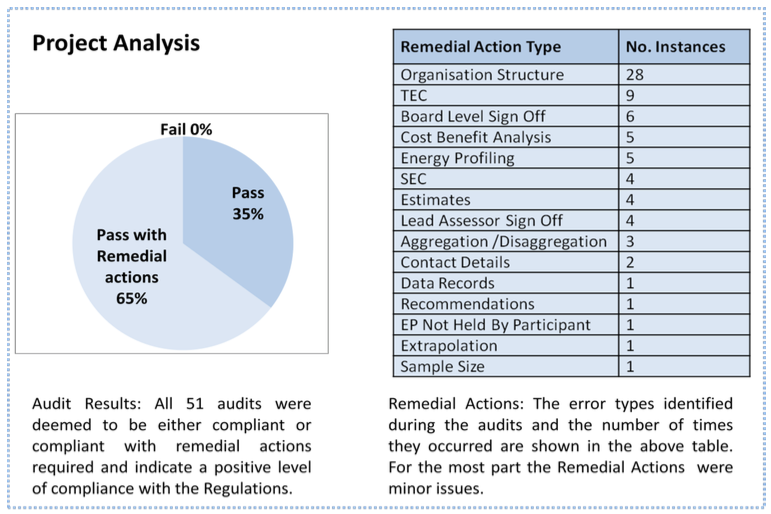
What’s wrong with energy efficiency policy and can industry help fix it? Respected consultants Mervyn Bowden, James Summerbell and John Mulholland weigh in.
Energy efficiency is arguably the cheapest way to deliver security of supply and reduce carbon. Yet policy focus appears to be firmly on the supply side. Companies appear equally reticent over energy efficiency, applying hurdle rates far higher than applied to other areas of business expenditure.
It is possible that policies such as Esos will make some inroads by showing businesses how they can make savings. But those involved in the scheme are unconvinced. Garbage in equals garbage out, they suggest. So what will make UK plc take action?
 Energy consultant Mervyn Bowden, MD of Intuitive Energy Solutions and former head of energy at Marks & Spencer, thinks it may take some form of benign dictatorship to ensure that energy efficiency is enforced.
Energy consultant Mervyn Bowden, MD of Intuitive Energy Solutions and former head of energy at Marks & Spencer, thinks it may take some form of benign dictatorship to ensure that energy efficiency is enforced.
“That is what it needs: Government to say ‘this is what we are going to do because it is about the national good and it has got to happen’. How different is it from putting a speed limit on a road?”
Opportunity lost?
The current policy thrust for improving energy efficiency among larger organisations is the Energy Savings Obligation Scheme (Esos). While there are signs that the regulation is raising awareness of energy saving measures, Bowden believes that Esos represents a “massive missed opportunity” because it does not require businesses to act upon energy audit recommendations.
Andrew Warren, chairman of the British Energy Efficiency Federation, thinks Esos is a reasonable start, because it requires directors to sign off energy audits, thereby compelling them to undertake financially viable measures. That theory appears to be borne out by initial survey data from The Energyst’s readership, which suggests that a significant proportion of firms that have completed an Esos audit have taken subsequent action. But others think increased awareness may not necessarily translate to outcomes.
“What we are seeing with Esos is that larger companies view it as a compliance exercise because they are already doing most of what it entails,” says James Summerbell, a director at Noveus Energy and former head of energy at Tesco. 
“There is some evidence with medium-sized companies that Esos is opening their eyes to money-saving projects,” he says. “But we are not witnessing a Damascene moment as a result of Esos. Those companies are not suddenly coming up with integrated energy plans.”
Quality control
Part of the problem, Summerbell suggests, is that the quality of Esos audits is highly variable. But he is not convinced that requiring companies to act upon Esos recommendations, as Bowden suggests, is a good idea.
“If consistency and quality of lead assessors under Esos was improved, that would probably lead to a better outcome,” says Summerbell. “But ultimately, if a company is just not interested, and they are not being forced to invest to reduce their consumption, then there isn’t much you can do to legislate for that without going down the CRC route again – and I don’t think anyone has any appetite for that.”
Incompetence
John Mulholland, founder and principal consultant at Mulholland Energy Solutions, says Esos has been let down by its execution. It was, he suggests, “a study in incompetence”.
“Part of the reason that the Esos recommendations are not being implemented is the poor quality of the Esos audits,” says Mulholland, a lead assessor who undertook 36 audits.
“The majority of ESOS audits appeared to have been done by an unqualified army of inexperienced auditors. No minimum qualification was required for auditors. And some of the Esos lead assessors have proved their incompetence because they have passed these audits as compliant when they clearly were not.”
According to the Environment Agency, 65% of a sample of 51 compliance audits needed remedial action to pass.

Instead of making clients pay for lead assessors, the Environment Agency should have ensured it had “competent people within the Agency to check each of the audits,” says Mulholland.
“Because the government wasn’t willing to pay for it, lead assessors had to be paid for by the client. And what did the client want? The cheapest possible thing. So what did they get? Inexperienced and unqualified auditors resulting in poor quality recommendations. There was a race to the bottom on price and no effort put into quality.”
The upshot, says Mulholland, is that it makes selling energy efficiency improvements to boards that already view it as discretionary spend even more challenging
“I would say that the quality of a lot of recommendations, based on the price people were paying and the way it was done, would not be fit for purpose,” he says.
“Therefore I would not blame the management for not investing [in energy efficiency recommendations on that basis].”
Is Esos making any difference for Energyst readers?
The Energyst’s online survey of 40 firms that completed the Esos audit suggests that around two thirds felt their audits were thorough and are taking action as a result.
Those findings, while from a small sample, add weight to suggestions by the Carbon Trust, which was involved in around 200 audits, that about 80% of those firms have subsequently acted upon recommendations. However, David Tobin, energy consultant with the Carbon Trust, points out that those were either low or no cost measures that were already part of existing budgets.
Help us to create a more robust snapshot of energy efficiency uptake by taking our short survey on energy efficiency within your company.
Who should advise government on energy policy?
 If government policy is putting the cart before the horse in terms of supply before demand, is it getting the right advice? Mervyn Bowden, MD at Intuitive Energy Solutions, thinks not. He has mooted a cross-sector coalition of the willing to create a simple set of plans that work for industry and policymakers – and help to avoid expensive mistakes.
If government policy is putting the cart before the horse in terms of supply before demand, is it getting the right advice? Mervyn Bowden, MD at Intuitive Energy Solutions, thinks not. He has mooted a cross-sector coalition of the willing to create a simple set of plans that work for industry and policymakers – and help to avoid expensive mistakes.
“I would be very happy to assemble a small group of seasoned professionals from this industry to put forward to Greg Clark and his department a set of pragmatic, commercially viable options which are independent and uninfluenced by vested interests,” says Bowden.
The group, he said, would also benefit from expertise outside of the energy sector, such as the Royal Institution of Chartered Surveyors and the Chartered Institute of Procurement and Supply.
“All of those bodies have experts in their own fields that are used to being very objective about process-driven improvement. I think they could be of considerable benefit to the energy sector,” says Bowden.
“Taking bureaucracy, multiple consultations, political and commercial interests out of the equation I think would make for a far more effective pipeline of solutions than the present arrangements.”
If you are interested in forming such a group, contact mervyn.bowden@intuitiveenergysolutions.com.
Many of the above issues will be discussed at breakfast briefing in London on 23 November. We have a limited number of free places for those responsible for energy within their organisation. Reserve your seat here.
Related articles:
UK firms say finance remains main barrier to energy efficiency investment
Tell us how your business views energy efficiency
TPIs failing to engage clients on energy efficiency
60% of firms taking energy efficiency action post-Esos
Esos and the slow death of energy management
Green Investment Bank: Energy managers must build better business cases to finance energy efficiency
Lighting and building controls top UK firms 2016 energy efficiency investment plans
Investors with €1bn to spend on energy efficiency seek UK projects
Environment Agency working out if 3,000 firms actually qualify for Esos scheme
Government should subsidise energy efficiency over renewables and give Esos teeth
Esos firing blanks on board level buy-in to energy efficiency
How to make energy efficiency more robust and investible
The heat is on, but which technologies will decarbonise heat at lowest cost?
Heatpumps, biomass and CHP top firms’ heat investments for 2016
Brussels increases focus on energy efficient heating and cooling
Financing energy efficiency – free report
Free report: Directors’ Energy Report 2016
Free report: Demand-side response 2016
Click here to see if you qualify for a free subscription to the print magazine, or to renew.
Follow us at @EnergystMedia. For regular bulletins, sign up for the free newsletter.




Remember ESOS was created in order to comply with the requirements of the 2012 Energy Services directive. That directive deliberately did not make it mandatory for anybody to implement any of the recommendations received under it. But it did empower subsequent auditors in four years time to require detailed explanations as to precisely why any of the cost effective recommendations had not been implemented.